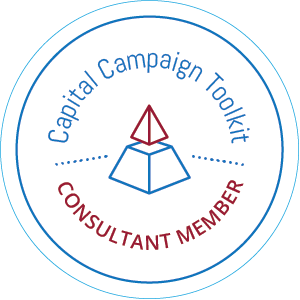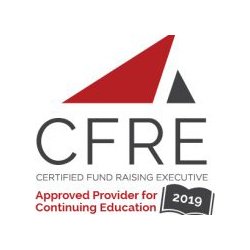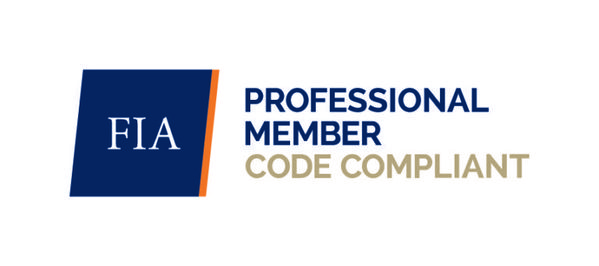We often talk about banning jargon when we speak to others about our organization. And, that is so needed. But, I would like to take it one step further, and say that we are not here to “educate” our donors about what we do.
They don’t care about the specifics.
There, I said it. Truly, your donors don’t. Just think about your experiences. When I call an electrician to fix an electrical problem in my house, I don’t want him to explain all of the mechanics of electricity or what is wrong with my particular situation. Right? Tell me basically what is wrong, how you are going to fix it, and how much it is going to cost. Don’t share with me black to black, and red to red, and copper to copper, I don’t want to know. It is actually beyond me.
So, when you have a particular project, do you think that donors want to know every little nitty gritty detail? I hardly doubt so. For the fact of the matter is, they should have a relationship with your organization before you even ask them to give and if they have a relationship with your organization, then they should TRUST you and TRUST that if they invest in you, you will know what to do with their investment. In fact, they believe that you are the expert in whatever part of the sector your serving. You can’t expect your donor to know all about the legalities surrounding domestic violence victims or child custody cases; they expect you to know and to do that.
So, when you are meeting with a donor and sharing a particular project or even your organization and what it does, spare them the details. Give them the picture of why you, why now, and for what? Otherwise, if you share too much, you will lose your donor in the process.
We get so carried away in our “internal” thinking that we fail to see a contributor as a donor as a person. We talk as if they are supposed to know what we are referring to; we use language and jargon to paint portraits of projects, and we go and on and on sharing minutia with them. It is time to stop and think about your experience with your mechanic, or your plumber, or your electrician, or any other expert that you have hired. What do you need to know, what do you want to know, and what is it going to cost you.
The adage “keep it simple,” reigns true here. Donors expect YOU to be the expert, not them. So, don’t shroud them in jargon and details and minutia. Just share with them what is wrong, how you are going to fix, and how much it is going to cost. Simple.

 So, many months ago, I set out and found a hill. I went up and down that hill over and over again. Then, searching online, I found mountain races. And, I entered them. And, I began running up to the summits of mountains. First smaller ones, and then larger ones. But, nothing greater than 3,000 or so feet.
So, many months ago, I set out and found a hill. I went up and down that hill over and over again. Then, searching online, I found mountain races. And, I entered them. And, I began running up to the summits of mountains. First smaller ones, and then larger ones. But, nothing greater than 3,000 or so feet. ith fundraising? Well, a great deal. Courage. I honestly believe that the most significant characteristic of a fundraiser is courage. These exceptional individuals know that even in the most difficult times, perseverance is key, and that “this too shall pass.” Courage to get a lot of “no’s” and to be able to ask for a gift without hesitation. It is the ability to do this, with rumblings and butterflies floating around in your tummy.
ith fundraising? Well, a great deal. Courage. I honestly believe that the most significant characteristic of a fundraiser is courage. These exceptional individuals know that even in the most difficult times, perseverance is key, and that “this too shall pass.” Courage to get a lot of “no’s” and to be able to ask for a gift without hesitation. It is the ability to do this, with rumblings and butterflies floating around in your tummy.

 messages that I subconsciously learned about money, and they helped to develop my now adult relationship with it.
messages that I subconsciously learned about money, and they helped to develop my now adult relationship with it. disclosure, like other more traditionally recognized stimuli, may be inherently
disclosure, like other more traditionally recognized stimuli, may be inherently  your territory. Use facial gestures that indicate happiness, open up your chest area, use hands to illustrate your words, etc.
your territory. Use facial gestures that indicate happiness, open up your chest area, use hands to illustrate your words, etc. When I surmise this is the case, I often ask, “Have you asked your donors?” And, the response is “No, how do you ask them?”
When I surmise this is the case, I often ask, “Have you asked your donors?” And, the response is “No, how do you ask them?” average of twenty cents per dollar raised to renew donors via direct mail? It costs about $1 to $1.25 to acquire a donor using that same method. That is five times more. And, on the converse, these new donors tend to give substantially less. It is much easier to upgrade an existing loyal donor to a higher level of giving.
average of twenty cents per dollar raised to renew donors via direct mail? It costs about $1 to $1.25 to acquire a donor using that same method. That is five times more. And, on the converse, these new donors tend to give substantially less. It is much easier to upgrade an existing loyal donor to a higher level of giving.
 important to not only look at internal things that will impact your fundraising success i.e. Board of Directors, etc., but it is also critical to examine external factors as well. Some external things that may affect the success of fundraising include political factors (i.e. election time), economic (a down economy), sociocultural (changing demographics), and technology (changes in the web, social media, etc.). Development audits also tend to examine others in the industry including nonprofits serving the same type of causes, similar sizes, potential collaborators, and other market factors).
important to not only look at internal things that will impact your fundraising success i.e. Board of Directors, etc., but it is also critical to examine external factors as well. Some external things that may affect the success of fundraising include political factors (i.e. election time), economic (a down economy), sociocultural (changing demographics), and technology (changes in the web, social media, etc.). Development audits also tend to examine others in the industry including nonprofits serving the same type of causes, similar sizes, potential collaborators, and other market factors). se results to the board.
se results to the board.




